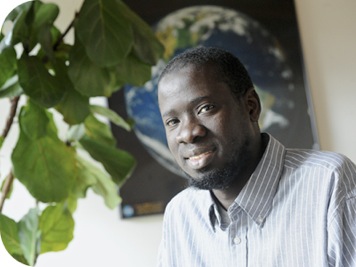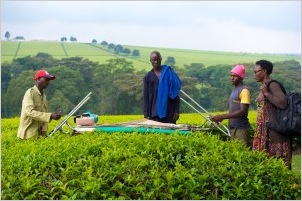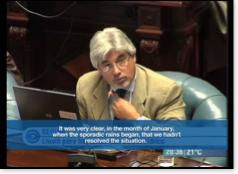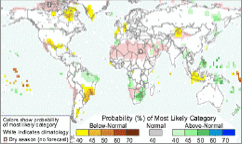If you're having trouble seeing international characters or other parts of this html page, click here to view online.

Newly minted climate scientist Ousmane Ndiaye brings the forecasting expertise he developed at IRI and Columbia University back to his native Senegal.
Read our story and watch a short video interview.
Improving Climate Prediction in Africa

IRI Forecast shown in Uruguayan Parliament

Upcoming events and seminars...
April 8th: Columbia Water Center Seminar: Water for a Crowded World - Lessons from the Northeast Corridor. Speaker: Charlie Vorosmarty, Professor, Civil Engineering; Director, Environmental Crossroads Initiative, City College of New York. view
April 8th: IRI Seminar: Changes of Summary Rainfall Variability over the Pan-American Regions in recent decades and their connections to change of the North Atlantic Subtropical High. Speaker: Rong Fu, University of Texas at Austin. view
April 21st: IRI Seminar at Lamont Campus: Climate, Forecast and Impacts Briefing. Our monthly meeting during which we unveil the latest global and regional forecasts, as well as discuss climate-related events around the world. view
IRI in the News...
Africa's weather data should be free (GlobalPost). view
Your Guide to Global Warming and Coffee (The Atlantic). view
Heat Damages Colombia Coffee, Raising Prices (The New York Times). view
Hello America - Punjab's Foggy Weather (Voice of America). view
In the science press...
Science-based Insurance. Molly E. Brown, Daniel E. Osgood and Miguel A. Carriquiry, 2011. Nature Geoscience.
Africa needs climate data to fight disease. M.C. Thomson, S. J. Connor, S. E. Zebiak, M. Jancloes, and A. Mihretie, 2011. Nature.
A Significant Component of Unforced Multidecadal Variability in the Recent Acceleration of Global Warming. T. DelSole, M. K. Tippett, and J. Shukla, 2011. Journal of Climate.
Peruse all of the IRI's scientific publications and reports in our database.
Current seasonal rainfall forecast...

See all of our forecasts...
The International Research Institute for Climate and Society was established as a cooperative agreement between
the U.S. National Oceanic and Atmospheric Administration's Climate Program Office and Columbia University.
It is part of The Earth Institute at Columbia University.